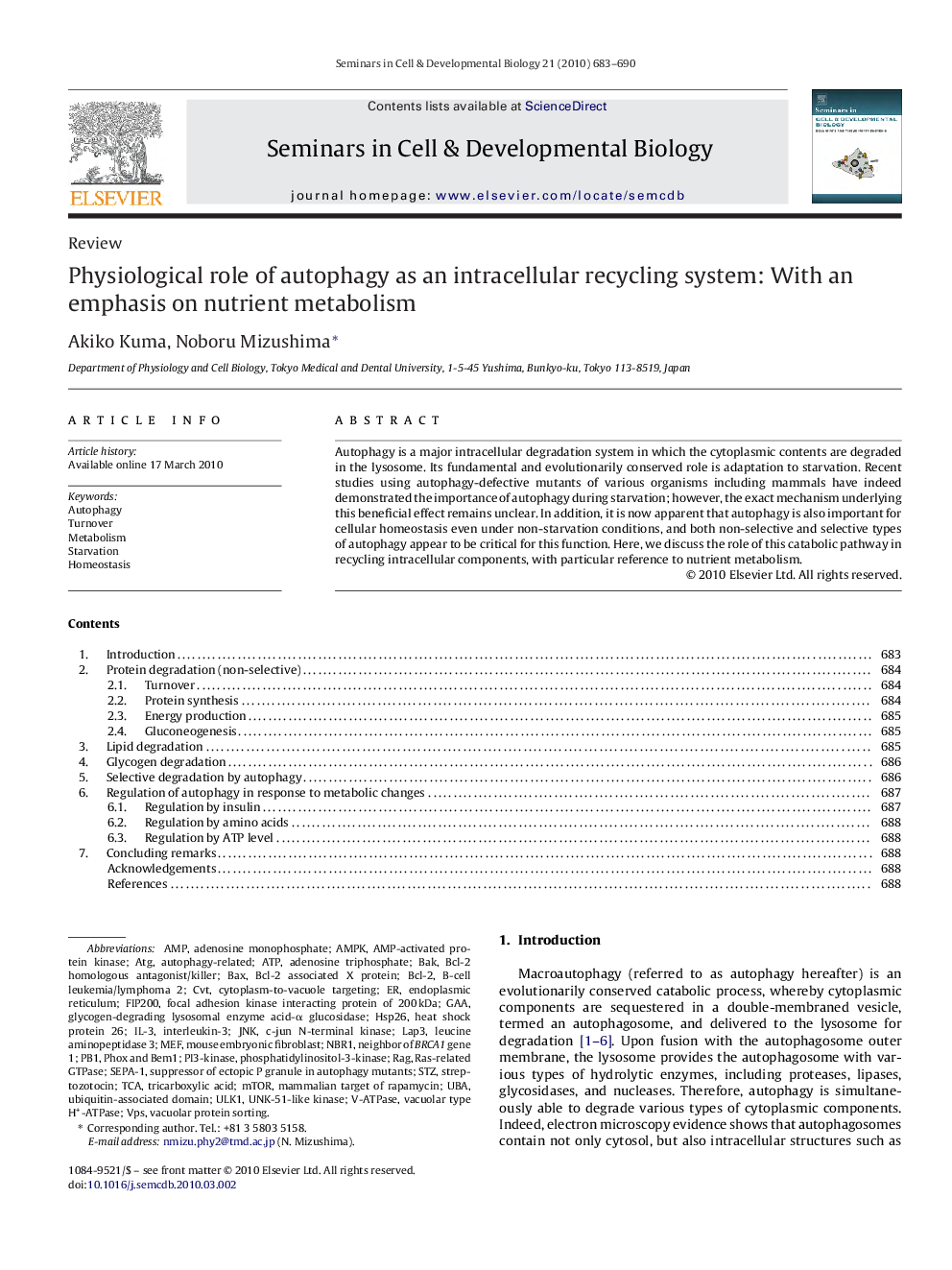| Article ID | Journal | Published Year | Pages | File Type |
|---|---|---|---|---|
| 10959243 | Seminars in Cell & Developmental Biology | 2010 | 8 Pages |
Abstract
Autophagy is a major intracellular degradation system in which the cytoplasmic contents are degraded in the lysosome. Its fundamental and evolutionarily conserved role is adaptation to starvation. Recent studies using autophagy-defective mutants of various organisms including mammals have indeed demonstrated the importance of autophagy during starvation; however, the exact mechanism underlying this beneficial effect remains unclear. In addition, it is now apparent that autophagy is also important for cellular homeostasis even under non-starvation conditions, and both non-selective and selective types of autophagy appear to be critical for this function. Here, we discuss the role of this catabolic pathway in recycling intracellular components, with particular reference to nutrient metabolism.
Keywords
Bcl-2 homologous antagonist/killerSTZATGGAAAMPKVPSULK1RAGIL-3FIP200CVTPB1UBAPI3-kinaseNeighbor of BRCA1 gene 1vacuolar type H+-ATPaseNbr1Hsp26B-cell leukemia/lymphoma 2JnkV-ATPaseBcl-2AMPmTORTCAMEFAMP-activated protein kinasec-Jun N-terminal kinaseAdenosine TriphosphateATPadenosine monophosphateAutophagystreptozotocintricarboxylic acidInterleukin-3BaxTurnoverUbiquitin-associated domainendoplasmic reticulumphosphatidylinositol-3-kinaseMetabolismVacuolar protein sortingautophagy-relatedmouse embryonic fibroblastmammalian target of rapamycincytoplasm-to-vacuole targetingHomeostasisBcl-2 Associated X proteinBAKStarvation
Related Topics
Life Sciences
Biochemistry, Genetics and Molecular Biology
Cell Biology
Authors
Akiko Kuma, Noboru Mizushima,
